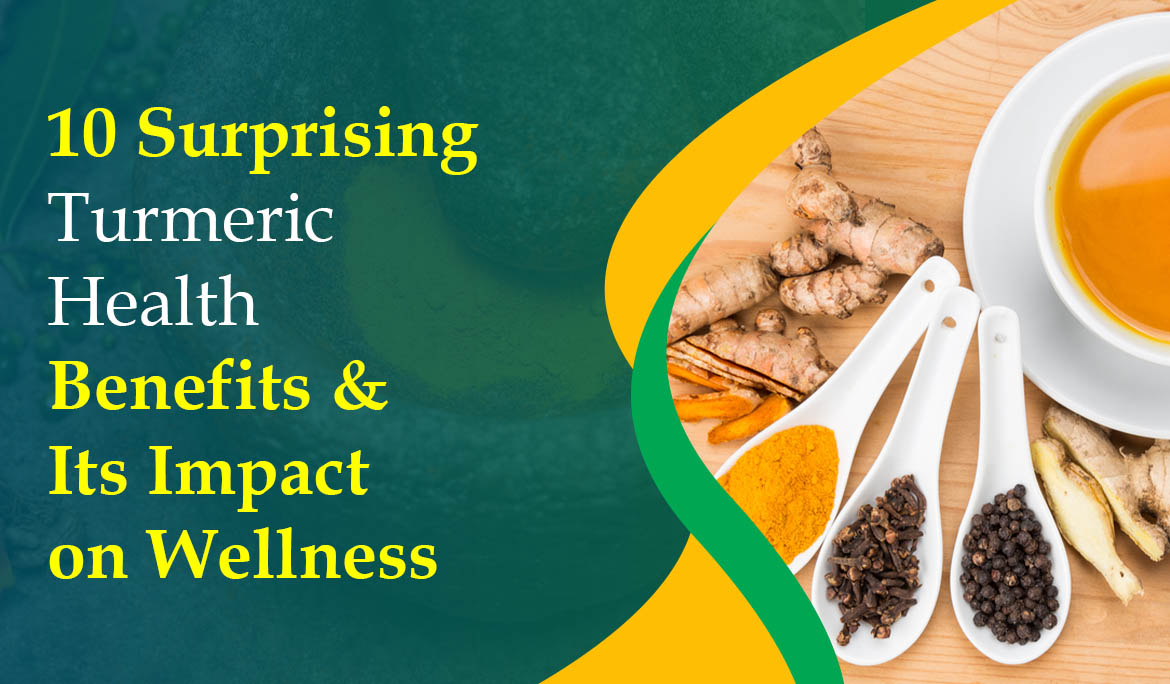Ayurveda and Traditional Chinese Medicine have long-standing uses for turmeric. It is a vivid yellow spice taken from the root of the Curcuma longa plant. Curcumin, its main ingredient, mostly explains its health advantages, which are, anti-inflammatory, antioxidant, and maybe anticancer qualities. Many of these assertions have lately been supported by new research exposing unexpected Ayurvedic turmeric uses influencing general wellness.
- Powerful anti-inflammatory turmeric benefits
The powerful anti-inflammatory uses of turmeric is among its most well-known advantages. Chronic inflammation has been related to many health problems, including heart disease, cancer, and Alzheimer’s disease. By preventing the synthesis of pro-inflammatory cytokines including TNF-alpha and IL-6, curcumin properties essentially lowers body-wide inflammation. Curcumin offers a natural substitute for NSAIDs since studies have shown it can reduce symptoms in disorders like rheumatoid arthritis and osteoarthritis.
- Antioxidant Results
Antioxidants abound in turmeric, which helps fight oxidative stress brought on by free radicals. These are unstable chemicals that can harm cells. Curcumin boosts the action of the body’s own antioxidant enzymes and neutralizes free radicals. Maintaining cellular integrity and avoiding chronic illnesses depend on this protective action.
- Advancement of Heart Health
Studies show that by reducing blood pressure and cholesterol, turmeric may help heart function. Curcumin has been demonstrated to greatly lower the risk of heart disease by improving endothelial function—the lining of blood vessels. In one study, patients who took curcumin supplements both before and after bypass surgery had a 65% lower risk of heart attack during hospitalisation.
- Cancer Prevention
Emerging data points to curcumin’s possible anticancer qualities. Its ability to stop several cancer cells (including breast, bowel, stomach, and skin cancers) from proliferating has been investigated recently. Although further human study is required to validate these effects, laboratory studies on curcumin’s capacity to stop tumor development indicate encouraging findings.
- Neurology and Alzheimer’s Disease
By raising levels of brain-derived neurotrophic factor (BDNF), a protein connected to enhanced brain function, curcumin might help to prevent or slow down the course of Alzheimer’s disease. Its anti-inflammatory and antioxidant qualities also guard against neural damage linked with neurodegenerative illnesses.
- Gastric Health
Traditionally, people have treated stomach problems using turmeric. The use of turmeric for digestion is quite common. Curcumin helps the liver produce bile, therefore facilitating fat breakdown. It has also shown promise in relieving inflammatory bowel illnesses like Crohn’s disease and ulcerative colitis, as well as irritable bowel syndrome (IBS).
- Mood Improvement
Besides using turmeric for immunity, the possible advantages of turmeric on mental health are attracting more and more attention. Certain studies propose that by raising serotonin and dopamine levels in the brain, curcumin can help reduce depression symptoms. Although studies on mood disorders are still in their early years, these results point to a promising natural remedy path.
- Support of Immune System
By raising the activity of immune cells like macrophages and T-cells, turmeric improves the immune system. Because of its immune-boosting qualities, turmeric is a great addition to diets meant to keep general health and ward against infections.
- Improving Skin Health
Turmeric’s antioxidant qualities improve skin health. While boosting a better complexion, curcumin can help lower skin inflammation and pigment problems. Its ability to fight aging symptoms and enhance skin tone makes it frequently utilized in skincare products.
- Weight Management
By affecting fat metabolism, several studies propose that curcumin might help with weight control. For people who run the danger of type 2 diabetes, it could help control blood sugar levels and increase insulin sensitivity.
Final Thoughts
Because of its active chemical curcumin, turmeric can provide many health advantages when included into your diet. From lowering inflammation to enhancing heart health and supporting brain activity, turmeric shows to be a great remedy in advancing general wellness. Though turmeric is usually safe when taken as a spice, excessive amounts from pills should be taken carefully under the advice of HiiMS Ayurvedic wellness. It is because of possible adverse effects including gastrointestinal trouble. For tailored advice on dosage and safety, it is essential to schedule a visit with HiiMS Premier before beginning any new supplement program.
Ultimately we can safely conclude that turmeric not only enhances food taste but also acts as a strong natural cure with broad medical effects.













